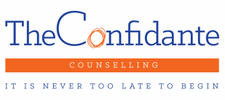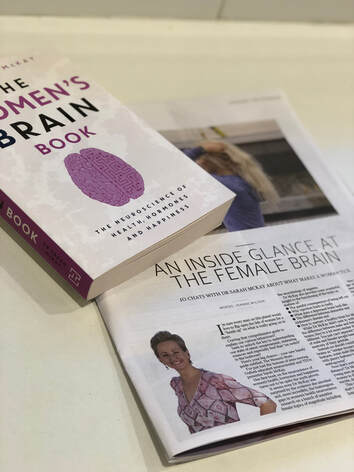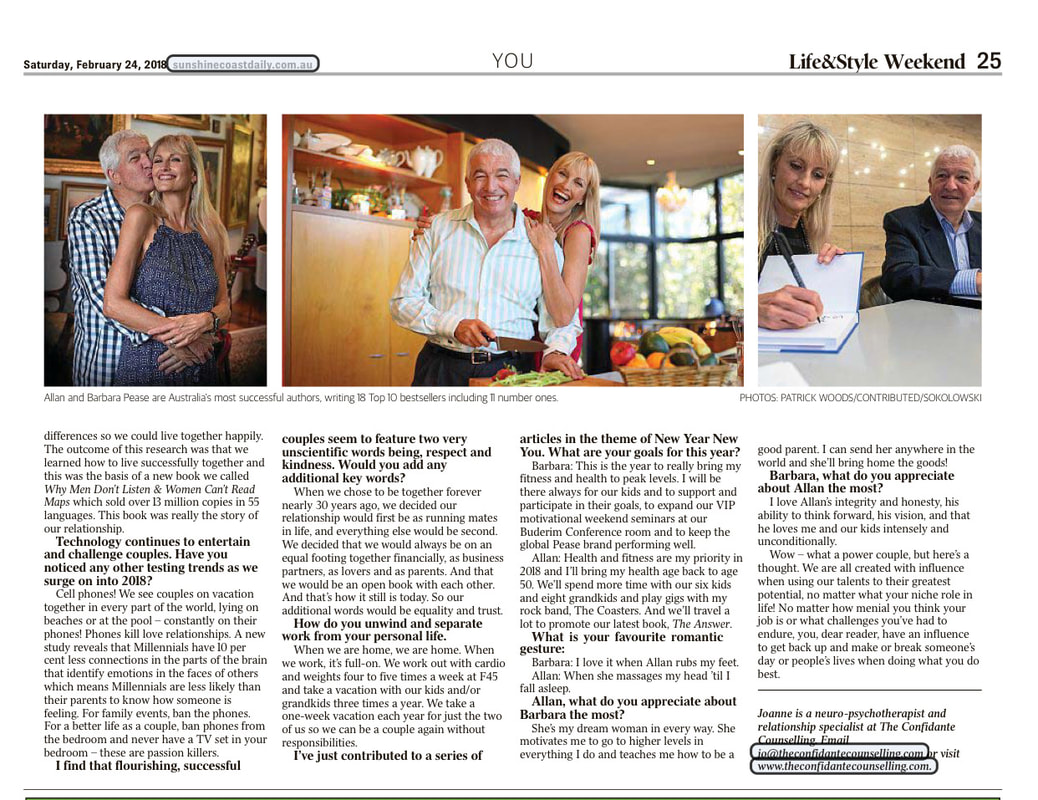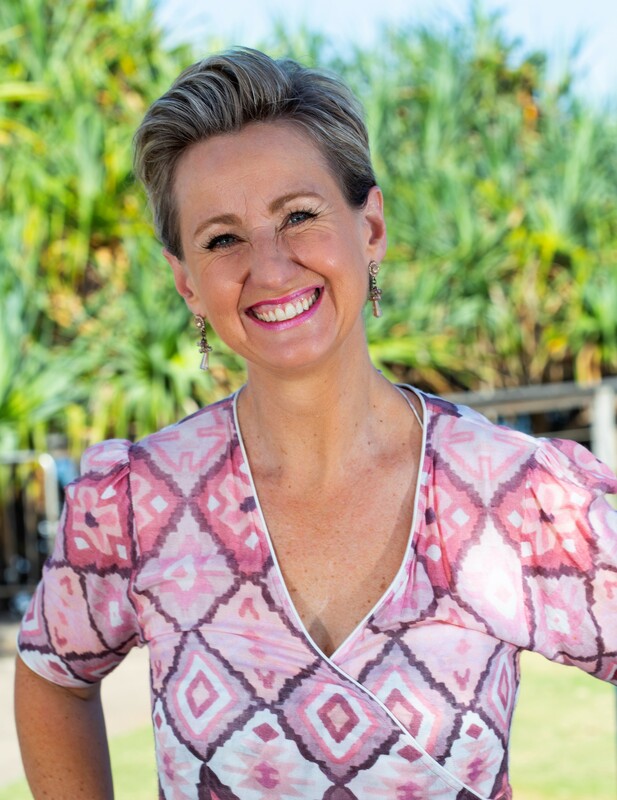|
I’m sure every man on this planet would love to flip open the lids of women for a “heads up” on what is really going on in there. Craving that comprehensive guide to explain our curious behaviours? Seek to unlock the key to understanding our state of mind, temperament, endearing nuances and especially find that ON switch in the bedroom? Here’s your big chance - your new handy guide entitled, The Women’s Brain.
I’ve just had the honour of interviewing Oxford-educated neuroscientist and TEDx presenter, Dr Sarah McKay. Her first book on the neuroscience of women’s health, hormones and happiness turns out to be quit the myth buster! It seems even Dr McKay was surprised by the evidence she unveiled. More incredibly the humungous gaps in women’s health neuroscience research around a bunch of sensitive female topics of magnitude including the neurobiology of orgasms. What about these other questions of substance?
Dr McKay also provides some wonderful insight to the functioning of the brain around matters of:
Whilst Dr McKay didn’t seek to write about the difference between male and female brains, they’re a lot more similar than different. You just can’t separate two groups of male and female people based on the anatomy of their genitals. Instead we should consider our amazing brains as “unique mosaics of different features, some male-like, some female-like, with plenty features best described as androgynous.” Now that’s sorted, who will last the distance? Dr McKay states “teenagers and young men are three times more likely than women to die by accidents (usually in a car), suicide, drowning and violence.” This provides women with quite a head start to the statistics that result in our longevity. Men then contribute to this further as they age with poor health choices. Women are more likely than men to die of dementia, lung disease cerebrovascular disease, influenza and pneumonia. How do we live longer? Centenarians studied in history provide us these fabulous tips based on their key characteristics. Stay lean, avoid smoking, become an expert stress buster, be optimistic, find purpose and avoid neurotic tendencies. Lastly, women have your children over the age of thirty-five. Go figure! Speaking of which, after producing three boys after thirty-five, where is my figure? Watch this space next week when I seek to unveil answers to some of the fascinating questions such as how to nurture your amazing noggin as outlined by Dr McKay next week. In the meantime, head to www.yourbrainhealth.com.au for your copy of The Women’s Brain and more. Joanne Wilson is a neuro psychotherapist, relationship specialist, radio co-host, workshop facilitator and guest speaker. Contact www.theconfidantecounselling.com or via email. Look out for my new podcast discussing these articles and more, "Is This Love?" As promised, my next instalment on the wonderful world of relationships, happiness and the brain! Whilst you might be over my neurobabble of late, you’ve got to love the fabulous findings about the brain that explains joy and fulfillment! Recent social neuroscience research reveals a specific pattern of brain activity occurs when you perform kind acts for others. When your folks asked you to play kindly, they were setting your brain up for success. If you were to hand over $100 to someone in need without expecting anything in return, the limbic region of your brain will go “bing”. Ok, so it won’t make that sound, but it’ll reflect activity you’ve been compassionate. Furthermore, your medial prefrontal cortex and temporoparietal junction would also likely want to say something like, ”nice one” if it could! Whilst there’s much to be explored in this field, you can’t ignore these findings about the warm fuzzies your brain and body experience when you’re benevolent! There was also a very cool study published in Science, conducted through the University of Oregon about neuroarchitecture and altruism. They proved when their research subjects donated money voluntarily or involuntarily their part of the brain associated with the processing of unexpected rewards became active. The neurons there secrete dopamine, a neurotransmitter that plays a key role in reward-motivated behaviour. (You also get a hit of this with “likes” on your Instagram post.) The team found higher amounts of dopamine for each subject when voluntarily choosing to donate as opposed to when they were forced to. As it turns out, whether we expect a reward or not, the midbrain will become activated regardless of whether we are sad or happy with our reason for doing it. It’s interesting that whether you feel good about it is irrelevant to this “hardwired” reward activity. Now that we know that the brain changes according to experience, activities like focussing, contemplating, and giving, cause it to grow and change. This is consistent with evidence of how your genes can be affected by your own environment. It makes absolute sense you can practise and train yourself or your children to be gracious and helpful for health reasons. The downstream effects of healthy brains to our body is an exciting current field of exploration. The bottom line? Find health and happiness by actively seeking opportunities to give and support others in your daily life. If you have children, create rituals in your family that inspires regular contributing together so it’s a natural enjoyable part of their culture from a young age. Examine yourself for those unhealthy ways you may have become addicted to lighting up your brain such as social media. We can also get tunnel vision with our robotic and urgent to-do’s, stuck in the latest reality television series or so distracted by our own problems; we lose sight of this grand beautiful picture! A world where we stay true to our inherent design relying on and supporting dynamic relationships and well-being for all. With thanks to “Altruistic behaviour - mapping behaviour responses in the brain” sourced from the National Library of Medicine. Joanne Wilson is a neuro psychotherapist, relationship specialist, radio co-host, workshop facilitator and guest speaker. Contact www.theconfidantecounselling.com or via email. I’m passing on a beaut little “go to” designed to keep your relationships thriving as well as beat off depression and anxiety. As featured last week, I had the honour of interviewing US neuropsychologist, Dr John Arden who’s devised a handy acronym that creates a happy and healthy brain. Post this up in your bathroom mirror for a constant reminder on ways to inspire SEEDS of joy for a fulfilling lifestyle, especially as we head on into the winter months here in Australia: S is for Social Connectivity: I know it can get so “peoply” out there sometimes but like it or not, we are designed relationally and thrive on emotional attentiveness. Loneliness causes cellular changes resulting in a weakened immune system, a propensity for addiction and even early symptoms of dementia! Our telomeres (caps on the end of our chromosomes) can shrink without cultivated and fostered social brain networks. Keep yourself engaged with real time authentic family or friends versus online acquaintances, likers and followers! E is for Exercise: Dr Arden says exercise is better than any anti-depressant or anxiety tool on the planet! He encourages 30 minutes of increased heart rate activity every day to stave off the blues. An array of awesome brain-enhancing biochemical processes occurs when we exercise which include producing new neurons in our brain. (No wonder all my best ideas are invented during a long jog, though unsure about the science of new concepts in the shower yet!). E is for Education: I’m sure you’ve heard, “If you don’t use it, you lose it”- true story. If you’re not constantly learning, you’re not building an infrastructure of brain connectivity. The more connectivity, the richer your cognitive reserve later in life. I recently read about Yale professor, Paul Bloom who specialises in cognitive psychology and pleasure research. He says pleasure doesn’t just occur – it develops. Want to know how to get it? He says study more! Aside from a headache from guzzling a lot of expensive wine frequently, we know it won’t provide as much happiness as if you were to learn about wine along the way! Instead of seeking delight from experiencing something over and over, gain knowledge from your object of pleasure. D is for DIET: Feed your brain with nutritious fuel as your brain chemicals need it. A diet of fried hot chips and sauce will starve your amazingly created head of healthy neurotransmitters. Do that and you’re up against it to think clearly and positively. Neuroscientist Dr Caroline Leaf states 95% of your serotonin and half of the dopamine in the body are produced in your gut. Importantly, don’t fall into the trap of the unnecessary sense of urgency to eat on the go. Eat slowly until you’re 80% full and let your mind be your guide – not your eyes! S is for Sleep: Achieving functional sleep is a deterrent for depression and anxiety. Dr Arden says sleep medications can hinder our sleep cycle required to naturally consolidate memories. Did you know your brain and body stays quite active when we sleep as it plays a housekeeping type role removing toxins? When we mess it all up with drugs and alcohol, it makes sense we experience that very apt term I recently heard of, “hangxiety” and dreadful symptoms afterward. Do it often enough and you get depressed and anxious. Struggling in this area? Start with mindfulness, prayer, exercise or a therapist to collaborate on sleep strategies to combat any over-thinking at all the wrong times. Happy planting and join me next week for another great way to light up the reward centres of your brain! Email me if you’d like more information on Dr Arden’s SEEDS Worksheet and don’t forget to listen in for my interviews with some of the esteemed authors and neuroscientists from the conference on Friday mornings Salt 106.5 breakfast show with Kristian. Joanne Wilson is the weekly columnist for the Sunshine Coast Daily Weekend magazine, weekly Friday morning radio co-host on Salt106.5, professional relationship counsellor and certified neuropsychotherapy practitioner of TheConfidante Counselling. She is based on the Sunshine Coast, Queensland - Australia. You can contact her at: www.theconfidantecounselling.com or email HERE.  I’m sure my Intelligence Quotient increased this week merely by attending the International Conference of Applied Neuroscience. You’re welcome to contest this but I’m enthusiastically owning it. As I basked in the company of a bunch of “incrediclever” mental health workers with PhD’s, GP’s, psychologists, counsellors and social workers, I marvelled at their earnest desire to help and inspire people to wellness. You’d think my newly acquired intelligence would produce an article featuring some rather substantial long words commencing with neuro and ending with brain-derived neurotrophic factor. Whilst these terms are incredibly important, I’ve kept it simple for us. Love is the answer. For all this listening and learning from thought leaders in my field, you’d think I’d need to share much more today. Whilst there were some fascinating insights to reveal in subsequent articles, this is a simple, beautiful place to start. No matter how compromised your home life was as a child, how much you’re grieving from loss, how bullied you’ve been, neglected, lonely or subsequently depressed you feel – finding someone to provide you emotional attentiveness can be your turning point toward thriving and joy. Enjoying the trusting therapeutic alliance with another beautiful human who will listen, guide and support your choice to growth is a gift. Those people who help you realise you truly matter - is paramount. Did you also know that feeling bad over life’s curve balls does not mean you necessarily have a mental disorder? Our immediate society means we expect an instant fast connection and quick fix. I’m talking about the next Netflix episode “coming up” in 30 seconds, high speed online information (not on the Sunshine Coast unfortunately), fast food and a pill for anything else. Death and grieving, losing your job or feeling down when life isn’t going so smooth may not mean you require a mental health diagnosis. Adversely, experiencing true joy as a comparison to life going great doesn’t mean you are manic! Life sure is a roller coaster and building resilience with your toolbox of healthy strategies is worth acquiring. When you can’t get out of your funk, lean on a mental health professional to help you navigate your way out and decide if you need medicinal support. Just saying, it doesn’t always mean you’re about to be diagnosed with a ghastly disorder! Furthermore, gone are the days we can blame our inherited genes for all our shonky habits, depression, anxiety or any tendency to chew with our mouth open. Sorry folks, you can only allocate only 2% of your “pre-determined” genes to that. The rest are non-encoded which means the other huge 98% is affected by your environment and subsequent ability to self-regulate, apply self-discipline and be resilient in the face of adversity. Genes only lay out potentials and vulnerabilities but don’t dictate your thoughts, feelings or behaviour. You can even turn them off by changing your behaviour and environment! Change that and your brain changes. Very cool. This has been found to apply to other mammals. Did you know that research studies prove that rat pups who were lovingly licked by their rat mummy have greater resilience and regulation than those who didn’t enjoy such a caring environment? These happy little gnarly rodents enjoy a more effective thermostat for stress featuring less cortisol and more serotonin (the happy neurojuice). Love is the answer! With special thanks to Dr John Arden, author of Mind-Brain-Gene: Toward Psychotherapy Integration, for his inspiring presentation and interview. I look forward to sharing more wondrous “neurofacts” and how important they relate to our relationships. Joanne Wilson is the weekly columnist for the Sunshine Coast Daily Weekend magazine, weekly Friday morning radio co-host on Salt106.5, professional relationship counsellor and certified neuropsychotherapy practitioner of TheConfidante Counselling. She is based on the Sunshine Coast, Queensland - Australia. You can contact her at: www.theconfidantecounselling.com or email HERE. |
Joanne WilsonJoanne will be your Confidante, enabling you to speak freely in complete confidence and serenity. An integrated approach tailored to your specific needs will be utilised.
Categories
All
Archives
October 2023
|
Joanne will be your Confidante, enabling you to speak freely in complete confidence and serenity. An integrated approach tailored to your specific needs will be utilized. Approaches such as Psychobiological Approach to Couple's Therapy (PACT), Cognitive Behavioral Therapy, Solution Focused Therapy and Emotionally Focused Therapy may be incorporated.
Joanne WilsonRelationship Specialist for individuals and Couples online around the world and servicing areas for virtual sessions around Australia and servicing many clients in Queensland including Caloundra, Noosa, Noosaville, Buderim, Mountain Creek, Gympie.
|
Quick links |
|
Queensland - Australia
0409 909 933
www.relationshiprejuvenator.com
|
|
©
2017-2023 The Confidante Counselling . All Rights Reserved
Web Design by Debbie Navarro






 RSS Feed
RSS Feed









